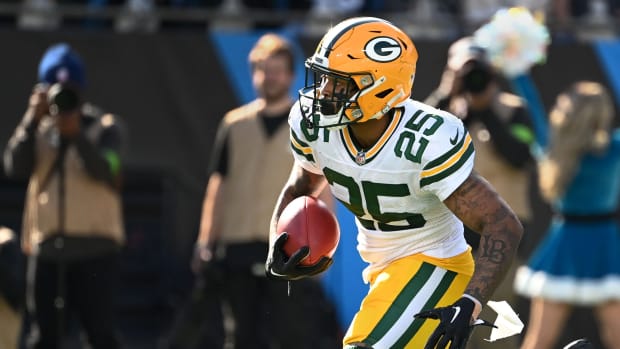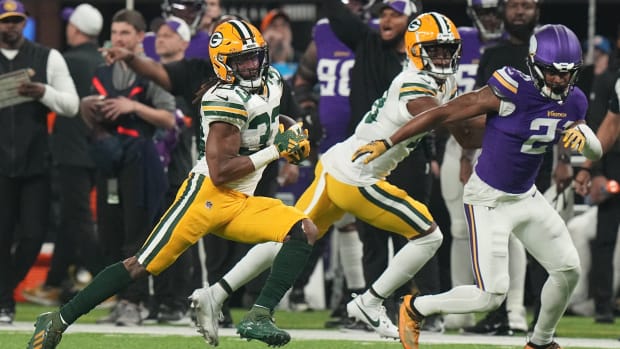For Packers, a Huge Profit and ‘Uncharted Waters’
GREEN BAY, Wis. – The Green Bay Packers’ financial bottom line is going to look like a rollercoaster.
In fiscal-year 2019, the Packers recorded a minuscule profit of just $724,000. That was down 97.9 percent compared to the previous year.
In fiscal-year 2020, the profit rose by an incredible 9,610 percent to $70.3 million, the team reported on Tuesday.
The 2020 fiscal-year ended just as the COVID-19 pandemic dug its claws into the nation. It’s going to have a major impact on Green Bay’s bottom line, with greatly reduced stadium capacities on game days, no fans allowed at training camp and vastly reduced numbers at the Pro Shop and for stadium and Hall of Fame tours.
“As we look ahead, obviously, we’re in uncharted waters,” Packers President/CEO Mark Murphy said in a Zoom call ahead of Thursday's virtual shareholders meeting. “It’s hard to estimate what the impact will be for us this year. We know it will be significant in terms of the revenue hit we’ll take this year. But, for the long terms, we’re positioned well financially.”
RELATED: A $411 MILLION RAINY-DAY FUND
RELATED: WOULD MARK MURPHY PLAY?
For the first time, the team realized total revenue of more than $500 million. National revenue increased from $274.3 million to $296 million and local revenue improved from $203.7 million to $210.9 million. Helped greatly by the built-in increases in TV contracts, that meant revenue increased in total by $28.9 million.
The split of national revenue means the 32 teams shared a financial pie of $9.47 billion.
While league-wide financial data from 2020 is not available yet, the team in the NFL’s smallest market once again finished in the top of the second quartile of teams in revenue in 2019.
Meanwhile, expenses dropped $40.6 million, from $477.2 million in fiscal-year 2019 to $436.6 million in 2020. Last year, the Packers went on a big free-agent spending spree, signed quarterback Aaron Rodgers to a massive contract extension and had to handle the firing of Mike McCarthy and his staff. It was a much quieter offseason, meaning a decrease in expenses.
“The biggest difference was the expenses that we had in 2019 fiscal-year were more extraordinary,” Murphy said. “In the fiscal-year ’20, much more normal expenses. If you look at our profit from operations of $70 million, that is more in line with what we’ve had in previous years.”
The team reported profits of the aforementioned $0.7 million in fiscal-year 2019, $34.1 million in fiscal-year 2018, $65.4 million in fiscal-year 2017, a record $75.0 million in fiscal-year 2016, $39.4 million in fiscal-year 2015, $25.5 million in fiscal-year 2014, a then-record $54.3 million in fiscal-year 2013 and a then-record $43.0 million in 2012.
The impact of COVID-19, however, is going to have a major impact on the team’s finances in fiscal-year 2021, which started on April 1. Murphy said the team is considering allowing between 10,000 and 12,000 fans into the 78,000-seat stadium. That means a huge loss in ticket sales and concessions. And with no fans allowed to watch training camp, the Pro Shop sales figure to be thrown for a loss, as well.
Still, Murphy spoke optimistically about the team’s financial future.
“The fact that we have a long-term collective bargaining agreement really bodes well for the league and all clubs but, I think, particularly for the Packers,” he said. “We’re now in the last year of the old collective bargaining agreement and we have a 10-year extension, so I think that will be very beneficial to us. And although Title Town is really not something that we invested in just for situations like this, I do think it diversifies us. Obviously, it’s a community asset but, over time, you’ll see it’s going to be very beneficial to the community and the organization.”




